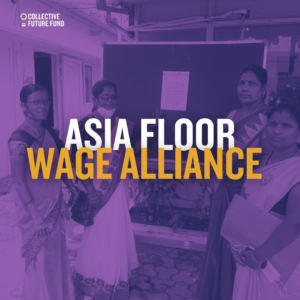Funding for transnational solidarity is more important than ever
In CFF’s inaugural round of grantmaking in 2019-20, we asked grantees to share about work they were doing outside the US or transnationally. We were encouraged to learn that many groups already had a growing body of work to build solidarity with movements addressing gendered, sexualized, and racialized violence across borders, with a focus on relationships with movement leaders, organizations, and networks in the Global South.
This kind of connection across contexts is more important than ever. We are living in an era of ultraviolence that links many forms of legislative and physical violence against Black and brown gendered bodies. This moment is shaped by global phenomena, including a rise in white nationalism, militarization, attacks on bodily autonomy, ‘Don’t Say Gay’ laws and prohibitions on teaching critical race theory. These phenomena are based on interests seeking to consolidate power across political, policy, and cultural contexts.For CFF, transnational means operating across national borders. CFF’s grantmaking prioritizes transnational feminist networking, organizing, and solidarity because the structural causes of oppression and injustice that lead to gendered, sexualized, and racialized violence exist across borders.
As billions of dollars flow from far-right organizations in the US to fund “anti-gender” initiatives abroad, it is critical to make visible the linkages between efforts that attack bodily autonomy, curtail the human right to reproductive and gender-affirming care, and escalate systemic violence against Black and brown gendered bodies. Now is the time to resource the survivors and their communities working to end all forms of violence. These leaders include women and gender-expansive people of color who have long been at the frontlines, building democracy by standing up for rights and justice as they work to turn the tide toward care-centered systems and policies here in the US.
As we consider their work, we cannot afford to overlook the interdependence of our global context, especially in the wake of a pandemic that laid bare widespread violence as a symptom of vast inequity. These lessons remain, along with the interconnected work of the #MeToo, Black Lives Matter, climate justice, LGBTQIA+ rights, and other pro-liberation, anti-authoritarian movements.
Why collective safety depends on movement building across borders
CFF seeks to end all forms of violence by specifically working at the intersection of gendered, sexualized, and racialized violence. While the particular aspects of gender, sexuality, race, class, caste, religion, disability, and other dimensions of politicized identity present themselves differently in various contexts, the systems of oppression that underpin them are part of our global operating system.
This requires feminist organizations, networks, intermediaries, and funders that are working for collective safety to be creative, to learn from one another, and to collectively target not only specific actors, but also systems perpetrating violence through actively practicing solidarity locally, regionally, and transnationally.
CFF has observed that our partners are stronger and more resilient because of their transnational work. Unleashing the power of transnational organizing also requires a greater investment in building solidarity and connection across movements. This involves developing organizing capacity, sharing experiences, and ensuring the sustainability of activists’ work.
Over time, we will continue to build within a transnational ecosystem on particular issues that are ripe for collaboration. We will emphasize learning from and co-creating with grantee partners around how to resource opportunities and spaces for transnational exchange and solidarity-building. Additionally, as a fund that is still just four years old, we will be assessing the organizational development and infrastructure that CFF will need to develop in order to do intentional, trust-based grantmaking to locally-based groups in the Global South.
CFF is committed to playing a role in building these bridges and acting as a catalyst for breaking down barriers to transnational organizing.
2023 TRANSNATIONAL GRANTEES:
An Asian labor-led global labor and social alliance across garment-producing countries (such as Bangladesh, Cambodia, India, Indonesia, Myanmar, Pakistan, Sri Lanka) and consumer regions (USA and Europe) for addressing poverty-level wages, gendered violence, and freedom of association in global garment production networks.
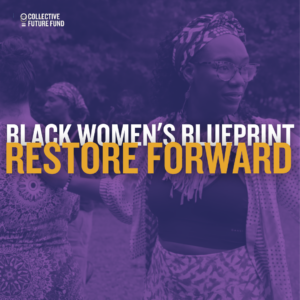 A survivor-led civil and human rights organization that works to build a powerful community of solidarity through direct action and advocacy, including opening a safe house for LGBTQ people in Ghana, and developing formal relationships and shared resources with a matriarchal village near Nairobi, Kenya, and with a traditional healers collective in Johannesburg, South Africa.
A survivor-led civil and human rights organization that works to build a powerful community of solidarity through direct action and advocacy, including opening a safe house for LGBTQ people in Ghana, and developing formal relationships and shared resources with a matriarchal village near Nairobi, Kenya, and with a traditional healers collective in Johannesburg, South Africa.
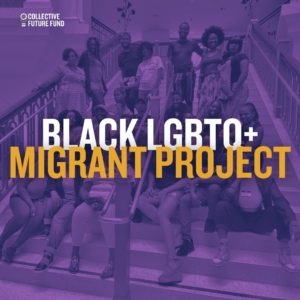 An anchor in the Border Butterflies Project, co-anchored by Transgender Law Center and Familia: Trans Queer Liberation Movement, with participation of other US and Mexican partners working to to support LGBTQ asylum seekers at the US-Mexico border with legal, humanitarian, and post-detention support and organizing. BLMP also hosts a transnational exchange with LGBTQIA+ Garífuna people living in Central America, to connect Black, gender justice movement-building in the US to power-building in Honduras.
An anchor in the Border Butterflies Project, co-anchored by Transgender Law Center and Familia: Trans Queer Liberation Movement, with participation of other US and Mexican partners working to to support LGBTQ asylum seekers at the US-Mexico border with legal, humanitarian, and post-detention support and organizing. BLMP also hosts a transnational exchange with LGBTQIA+ Garífuna people living in Central America, to connect Black, gender justice movement-building in the US to power-building in Honduras.
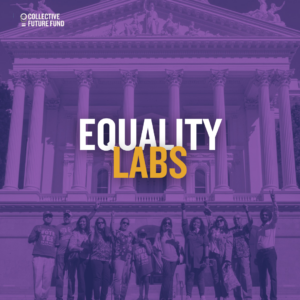 A survivor-led Dalit civil rights and power-building organization. They work at the intersections of advocacy, research, and digital security to end caste apartheid, gender-based violence, Islamophobia, and religious intolerance. Their multi-pronged strategy aims to create a comprehensive survivors’ political platform and pathways for Dalit feminist leadership toward safety, healing, and systemic policy change, both in the US and South Asia
A survivor-led Dalit civil rights and power-building organization. They work at the intersections of advocacy, research, and digital security to end caste apartheid, gender-based violence, Islamophobia, and religious intolerance. Their multi-pronged strategy aims to create a comprehensive survivors’ political platform and pathways for Dalit feminist leadership toward safety, healing, and systemic policy change, both in the US and South Asia
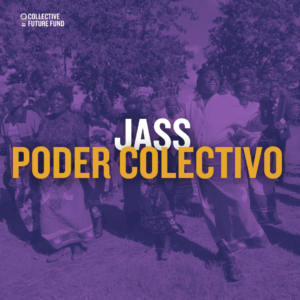 A feminist movement-support organization anchored in the Global South that has grown a transnational web of multiple organizations, partners, and allies in many countries and regions with a focus on Mesoamerica, Southeast Asia, and Southern Africa. JASS is developing feminist leaders, fostering cross-pollination and movement learning, and amplifying stories of grassroots feminist human rights defenders working on gendered violence and other issues affecting their communities.
A feminist movement-support organization anchored in the Global South that has grown a transnational web of multiple organizations, partners, and allies in many countries and regions with a focus on Mesoamerica, Southeast Asia, and Southern Africa. JASS is developing feminist leaders, fostering cross-pollination and movement learning, and amplifying stories of grassroots feminist human rights defenders working on gendered violence and other issues affecting their communities.
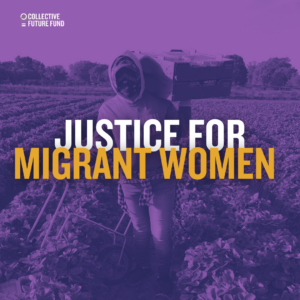 An advocacy, education, and power-building organization focused on migrant and farmworker women. Justice for Migrant Women partners with an organization based in South Africa on organizing, power-building, and systemic change through the multi-year Bandana Connect Retreat project to support migrant women facing sexual violence as they cross international borders.
An advocacy, education, and power-building organization focused on migrant and farmworker women. Justice for Migrant Women partners with an organization based in South Africa on organizing, power-building, and systemic change through the multi-year Bandana Connect Retreat project to support migrant women facing sexual violence as they cross international borders.
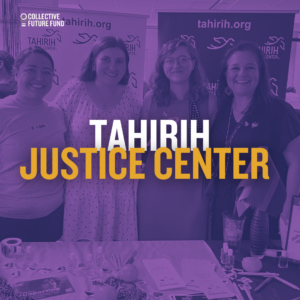 An advocacy and survivor-support organization that works at the intersection between anti-violence and immigrant rights. Tahirih Justice Center centers women and girls in danger of sexual violence at the US border, and is advocating for US asylum law to formally name gender and gender-based violence as a ground for asylum.
An advocacy and survivor-support organization that works at the intersection between anti-violence and immigrant rights. Tahirih Justice Center centers women and girls in danger of sexual violence at the US border, and is advocating for US asylum law to formally name gender and gender-based violence as a ground for asylum.
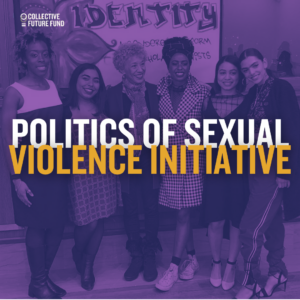 An initiative that draws on in-depth research and narrative work at intersections of gender and violence for marginalized women around the world to inform activist organizing, policy debates, and art. PSVI believes that the Global South exists in Harlem, Markham, St. Thomas, in dense pockets animated by the legacies of violence “back home.” PSVI leads the Eelam Writer’s Resistance Workshop, which has grown to over 12 countries, to support young women and queer folks’, former combatants’, and emerging activists’ poetry, nonfiction, and polemics.
An initiative that draws on in-depth research and narrative work at intersections of gender and violence for marginalized women around the world to inform activist organizing, policy debates, and art. PSVI believes that the Global South exists in Harlem, Markham, St. Thomas, in dense pockets animated by the legacies of violence “back home.” PSVI leads the Eelam Writer’s Resistance Workshop, which has grown to over 12 countries, to support young women and queer folks’, former combatants’, and emerging activists’ poetry, nonfiction, and polemics.
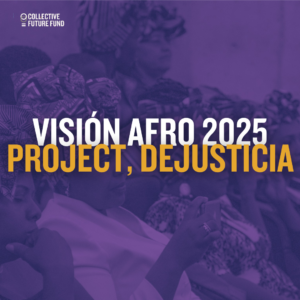 A project of Corporación Centro de Estudios de Derecho Justicia y Sociedad (DeJusticia), Colombia-based research and advocacy organization, Visión Afro 2025 is an inter-institutional, transnational platform for strengthening North-South multicultural dialogues that bring together North American and Latin American organizations working with Indigenous and Afro-descendent communities on gender and sexuality within the African diaspora, particularly in Colombia.
A project of Corporación Centro de Estudios de Derecho Justicia y Sociedad (DeJusticia), Colombia-based research and advocacy organization, Visión Afro 2025 is an inter-institutional, transnational platform for strengthening North-South multicultural dialogues that bring together North American and Latin American organizations working with Indigenous and Afro-descendent communities on gender and sexuality within the African diaspora, particularly in Colombia.
